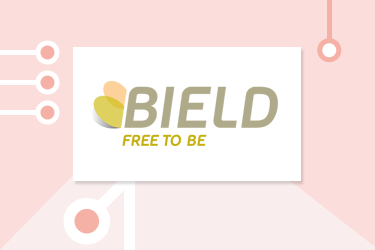How TAPPI Changed us - Bield Housing & Care

Following completion of the second Phase of the TAPPI project, Bield Housing & Care, one of the six TAPPI testbeds, tells us in this short Q&A how TAPPI influenced their work, the work of their staff and the everyday life of their residents.
What are the key lessons and insights that you have gained by implementing the TAPPI principles throughout the project? How have these lessons influenced your approach to technology enabled care in housing for older and vulnerable people?
The TAPPI principles played a crucial role in guiding our project, revealing challenges in system interoperability and a strong interest among tenants in learning technology. To address these issues, we adopted a collaborative, user-centric approach, establishing a Digital Hub for hands-on experiences.
This shift influenced our focus on digital literacy initiatives and bridging the digital divide, ensuring our technology solutions meet all tenants' needs.
Moving forward, our commitment to co-production and TAPPI principles will continue shaping our proactive, preventative, and outcome-focused initiatives in technology-enabled care for older and vulnerable individuals.
Can you share any specific success stories or notable achievements from your experience with the TAPPI project? How have these outcomes improved the lives of your tenants, and the work of your staff?
The TAPPI project has yielded significant successes for us, notably the establishment of a Digital Hub. This initiative, fostering hands-on experiences with technology, has empowered tenants, reduced digital inequalities, and enhanced understanding of tech's role in independent living. Tangible impacts include a tenant expressing peace of mind through sensor technology.
Our commitment to co-production and TAPPI principles has generated valuable qualitative and quantitative data, measuring digital awareness impact and technology's effects on well-being.
Staff improvements stem from prioritising digital literacy, addressing the digital divide, and adopting a collaborative, user-centric approach. These successes ensure ongoing positive impacts on tenants' lives and staff satisfaction in delivering proactive technology-enabled care.
Based on the learnings and outcomes of the TAPPI project, what recommendations or best practices would you suggest for future initiatives focused on technology enabled care in housing for older and vulnerable people?
- Establish a collaborative ecosystem by uniting solution providers for seamless data interoperability, crucial for integrated technology-enabled care.
- Prioritise digital literacy initiatives to bridge the digital divide among older individuals, empowering them and fostering inclusivity.
- Maintain a user-centric design approach by involving tenants in the development of technology solutions, exemplified by successful initiatives like the Digital Hub.
- Implement a data-driven evaluation process, leveraging quantitative data to continuously assess and refine technology's impact on tenants' lives.
- Commit to co-production principles, ensuring future initiatives are technically advanced and deeply rooted in the needs of individuals served.
These pillars, drawn from the TAPPI project, guide a more inclusive, effective, and person-centred approach to technology-enabled care for older and vulnerable people.
What has your experience of co-production with your residents been like throughout the project? And (how) do you intend to continue co-producing with them after the end of the project?
Co-production with residents in the TAPPI project has been pivotal in shaping its success. This cornerstone principle involved tenants in decision-making, leading to initiatives like the Digital Hub. Empowered residents provided valuable insights, influencing technology-enabled care solutions.
Commitment to co-production persists, with plans for a Digital Design Brief and Future Offerings, a Continuous Feedback Mechanism, and Co-Produced Service Offerings. These ensure alignment with evolving resident needs, real-time adaptation based on feedback, and a choice-led, person-centred approach.
Implementation of a new Digital Design Brief aims for connectivity and resource support, empowering tenants and the workforce. This ongoing commitment underscores a resident-focused, inclusive approach to future offerings.
Looking towards the future, what plans or recommendations do you have for sustaining and expanding the adoption of the TAPPI principles beyond the project's conclusion? How do you envision scaling up the successful practices and innovations developed during the project?
To ensure the enduring impact of TAPPI principles, we plan to embed them in Bield's long-term corporate strategy, shaping a vision prioritising tenant-centric independent living.
Ongoing co-production involves residents in shaping future offerings, while a digital design brief adapts to evolving needs and emerging technologies.
Establishing a knowledge-sharing platform and investing in training foster industry-wide adoption.
Envisioned impact sees consumer technology and tech-enabled care as standard, setting excellence benchmarks.
By integrating TAPPI principles, committing to co-production, and scaling successful practices, we aim to create a lasting legacy, contributing to a societal shift towards person-centred, technology-enabled care.
Gary Baillie, Head of BR24 and Assistive Technology Development, Bield Housing and Care
Throughout the second Phase of the TAPPI programme, the 6 testbeds have given us regular updates published in Q&As form:
- TAPPI Phase 2 - Q&A with Bield Housing & Care
Six months after their recruitment as one of the six TAPPI testbeds, Bield Housing & Care gives us an update on their project in this short Q&A. - TAPPI Phase 2 - Introducing Bield Housing & Care
A short Q&A introducing Bield Housing & Care, one of the six successful TAPPI2 ‘testbeds’.
